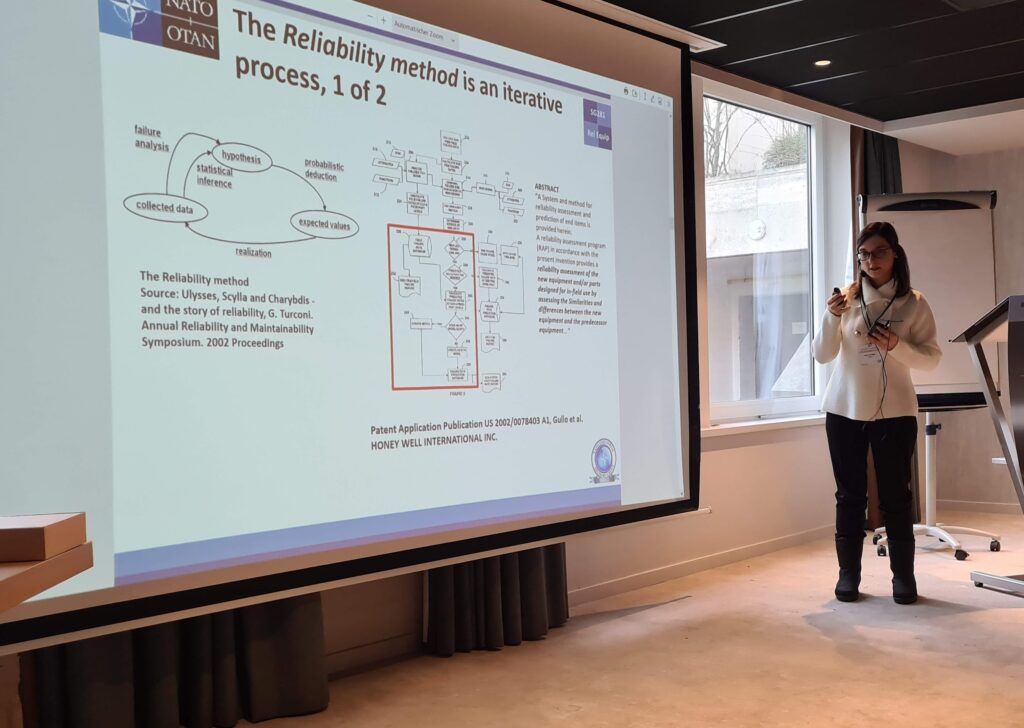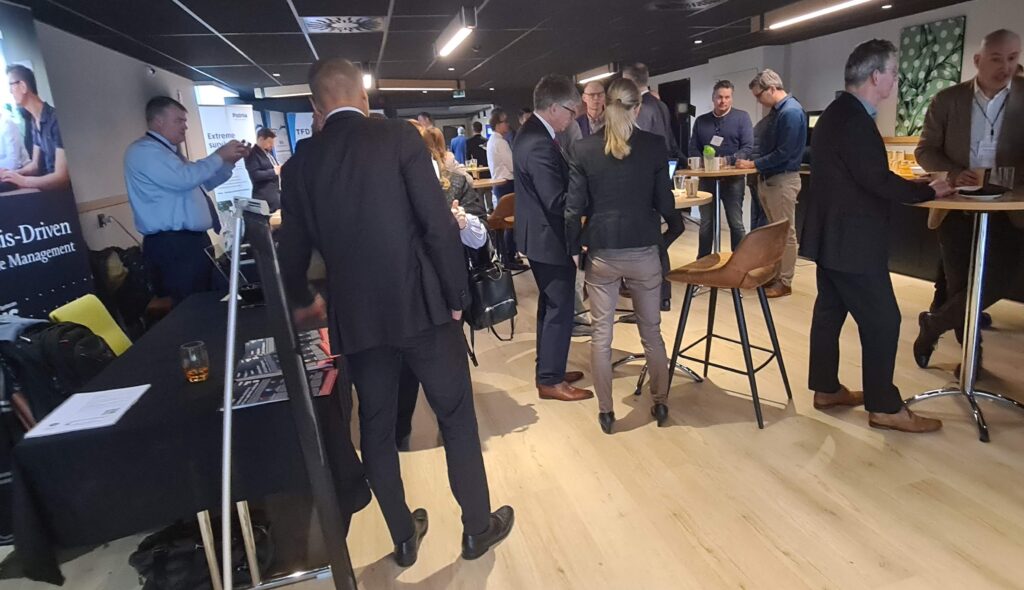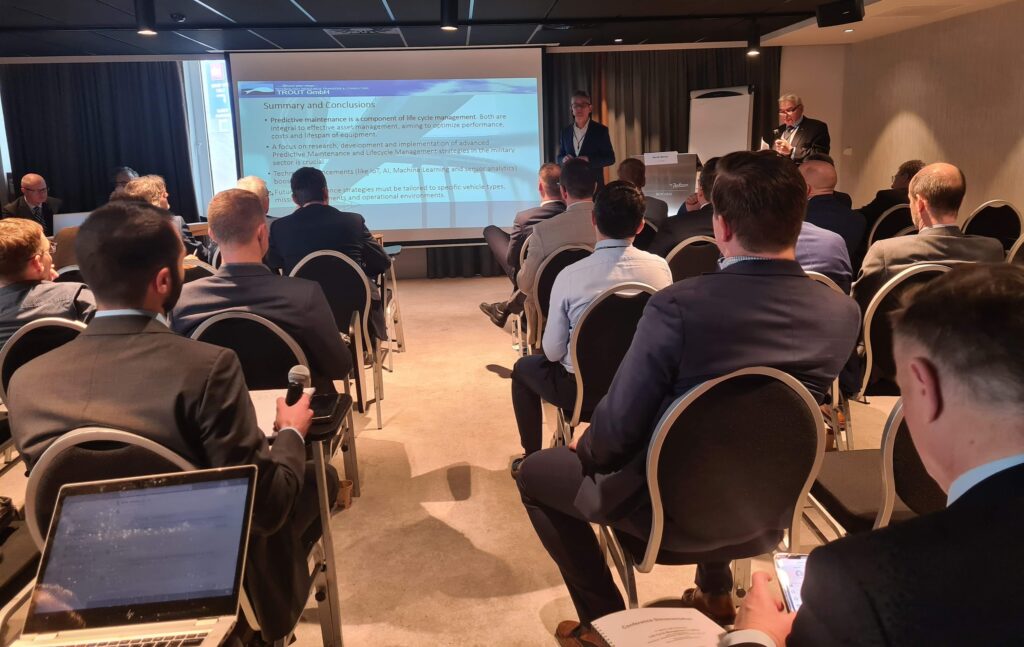Marking 20 years of NATO Life Cycle Management (LCM), the 20th edition of the NATO LCM Conference will be held on 21 and 22 January 2025 in Brussels. Gathering numerous government and industry representatives, and chaired by Thomas Espelund Pedersen (Danish Defence Acquisition and Logistics Organisation) and J. Bo Leimand (LEIMAND Freelance Consultancy), the conference has evolved to become a major reference for NATO-industry dialogue on LCM.

Besides dialogue with the NATO Strategic Commands and the NATO agencies, dialogue with and input from industry to support development of LCM standards has also matured during the 2000s, thanks to the mechanisms of interface with the NATO Industrial Advisory Group (NIAG), as well as with other organisations and fora that can inform about industry standards and practices.
At a time when – as highlighted in the NATO 2024 Washington Summit Declaration – security is crucial, and two decades have passed since the first LCM conference, the 2025 edition will host discussions on current LCM improvements and innovations that address both constant SLCM objectives and evolving LCM approaches enabled by technology and digital transformation.
Updates from NATO and NATO agencies
Taking stock of current LCM approaches and key activities in NATO and beyond, the conference will feature not only high-level representatives from the NATO Support and Procurement Agency (NSPA), the NATO AC/327, the Allied Command Transformation (ACT), but also academia.
Allan McLeod (Director, NSPA) will provide an overview of LCM at NSPA in a keynote speech while Deniz Gizem Özkan (Chair, AC/327) will update on the AC/327 group’s activities. Andreas Kirchhofer (Vice Chair, NIAG Industry Interface Group to AC/327) will elaborate on the mechanisms of interface with industry and the role of the NATO Industrial Interface Group (NIIG).
Barbara Craib (ACT) will address ACT’s progress in establishing Requirements Traceability through life for NATO common funded capabilities.
The quest to optimise life-cycle costs and maximise operational availability
Alongside development of the NATO Programme Management Model (AAP-20) – providing the framework for the NATO life cycle model – and the NATO System Life Cycle Processes (AAP-48) in the 2000s, the importance of forecasting Life Cycle Costs to inform important procurement decisions emerged as a key topic during the same period. Tools, best practices and processes to collect life cycle cost data started to develop, and industry shared knowledge and experience on this topic since the very beginning.
As computing power and technology have enabled the transition from collecting data to analysing, modelling and optimisation, especially in the last decade, the ability to offer increasingly sophisticated and innovative solutions is commensurate. This ability, expected to be exponentially increased by fast-growing use of AI, empowers a lifecycle perspective, including more accurate predictions of system performance throughout the life cycle and corresponding cost optimisation. Data modelling and simulation also enables a paradigm shift in the development of new systems, making it possible to predict performance and optimise life cycle costs right from the design phase.
This year’s anniversary conference is rich in insights regarding optimisation of system performance and life cycle costs.

Cost effectiveness through the life cycle will be addressed by Younes Lousseief and Oskar Tengö (Systecon) with an approach of integrated analysis capabilities. They will share how integrated modelling and analysis can facilitate a holistic perspective on LCM. Looking at the path from data to decision, they will also explain how information from different sources and formats can be ingested, tweaked and merged to form a model which can be used in different analytical approaches for different purposes through the life cycle.
Dr Sanathanan Rajagopal and Del Roberts (Sirius Analysis) will remind about the importance of adopting a total cost of ownership approach and present innovative ways to undertake cost estimation from the early stages of the project life cycle to the end of the project, including sustainment and disposal. They will elaborate on Parametric, Bottom up, Analogy and use of Artificial Intelligence and Machine Learning, as well as its advantages and disadvantages.
Integrated Life Cycle Support and multinational cooperation
The NATO Guidance for Integrated Life Cycle Support (ALP-10) has always been a key enabler of interoperability in NATO. Every revision has added another brick to this important SCLM objective, which is all the more critical for complex multinational programmes.
During the first day of the conference, Hannu Kenttämies and Atte Hytönen (Patria Oy) will share how Multinational Life Cycle Management is implemented in the Common Armoured Vehicle System (CAVS) programme, and Ian Knight (Ilias Solutions) will provide insights on how the company’s support for Ukraine’s F-16 fleet management is being expanded to other platforms.
Focusing on obsolescence, Dalila Onorati (Elettronica S.p.A.) will present the development of an in-house tool for Digital Obsolescence Management named DOM.
Inspired by greater data collection capabilities, LCM discussions during the last decade have tackled the emergence of Product Life Cycle Support (PLCS) data models presented as a concept, later as use cases, and then as a natural tool in presentations and discussions regarding exchange and use of data.
Representing Eurostep AB, known for its contribution to “designing and delivering major parts of the STEP/PLCS standard”, Mattias Larsson will address the challenge of “data debt” – or availability of reliable product data – and how this impacts decision-making and, ultimately, the achievement of a coherent and unified view of a product’s definition throughout its entire life cycle. Sharing experiences on working with Integrated Life Cycle Support, he will convey how his organisation believes that cooperation-related issues should be addressed to streamline LCM operations.
Emerging trends
Digital transformation enables ever more sophisticated, interconnected and integrated systems-of-systems, and complex operations in the multi-domain space. LCM processes need, therefore, to keep up with the opportunities but also the challenges brought about by these developments, for example, transitioning from managing stand-alone systems to managing interconnected systems.
Considering today’s context characterised by collaboration across nations, industries and technology disciplines, and the multi-domain environment, Alex Perkins and James Wood (Deloitte) will introduce Deloitte’s vision for Digital Engineering across the Defence Asset Delivery Enterprise and full life cycle. Referring to key technologies, use cases and case studies, the presentation will show how Digital Engineering and a connected Digital Thread are the key to unlocking a leap in LCM efficiency.

Environmental and sustainability considerations, and their effects on supportability, have grown in the last decade to be important and irreversible variables in LCM decisions. Two presentations will tackle these aspects.
Using examples from the Royal Canadian Air Force, Gabe Batstone (Contextere) will show how AI can enhance skill development and boost productivity through “sustainable AI” made possible by the use of smaller data models that reduce computational footprints, as well as of emerging techniques such as retrieval-augmented generation (RAG).
Fergus Hawkins and Simon Pethick (TFD Europe) will inform about the findings of a recent research project to evaluate the sustainability, viability and cost implications of alternative propulsion methods for a light aircraft used in a flying training environment. Their presentation will highlight the key support considerations for each of the alternative options considered, before revealing the benefits and drawbacks of each propulsion source, as shown by the analysis performed.
Building on the findings collected from the two-day conference, Holger Ziegler (Head Capability Delivery Section, NATO) and Manuela Tudosia (Chair NIIG to AC/327) will facilitate concluding discussions, setting the tone for the 21st edition of the LCM Conference.
We are looking forward to welcoming you on 21 January 2025!
Manuela Tudosia




